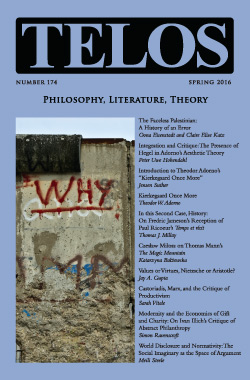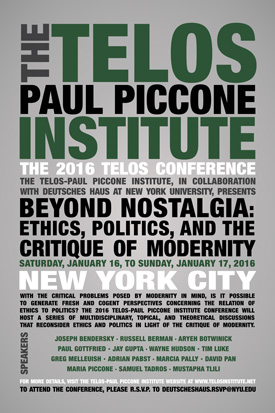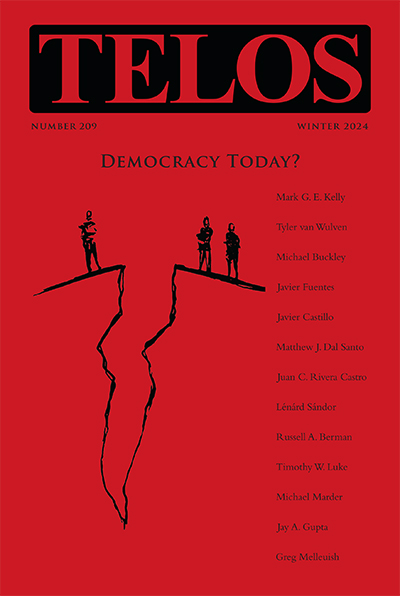Consider the Aristotelian maxim that humankind “is by nature a political animal,” whose capacity for speech, unique “among the animals[,] . . . serves to reveal the advantageous and the harmful, and hence also the just and the unjust.” If one accepts this dictum (and, crucial to this article’s line of thinking, by no means must one necessarily adhere to Aristotle’s rationalist model of “man,” nor any other universalist account of humanness), then the ceaseless question remains: what specific sort(s) of speaking, morally reasoning animal might the human be read as constituting, from within the interpretive mindset of a particular historical and civilizational milieu? Of course, this question presupposes, in a manner that may well be at odds with the anthropological premises of a universalist modern political doctrine like human rights, that, rather than exhibiting a fixed, unitary essence, the human acts as a signifier; as such, this human signifier might potentially refer to myriad worldviews, and sources and assemblages of contextualizing meaning, across which the understanding of humanness can be differently constructed and construed.
|
Telos 174 (Spring 2016): Philosophy, Literature, Theory is now available for purchase in our store. This article argues that after more than two centuries, our system of justice is no longer functioning as intended by its founders. I argue that this breakdown can be ultimately traced to a philosophical dilemma at the heart of American civilization: the assumption that economic self-interest can by itself sustain ethical care for a common good. In treating economic freedom as a moral absolute, the American right has misconstrued the practical purpose of freedom and undermined justice and equality for all. In contrast to the ahistorical claim of libertarians that economic freedom should be treated as a moral value, the goal of the founders of the United States was very concrete: enabling most citizens to get basic economic needs met in peace and security. Free and open elections and a system of checks and balances would motivate the naturally more powerful to manage their own passions in ways that contributed to a common good. By contrast, in unchecked political systems that arose by the struggle for dominance among the powerful few, the de facto rulers lacked any motive to act in ways that were consistent with the interests of the average citizen. As Thrasymachus claims in Plato’s Republic, they habitually wrote laws that benefited themselves at the expense of everyone else. The following paper was presented at the 2016 Telos Conference, held on January 16–17, 2016, in New York City. For additional details about this and upcoming conferences, please visit the Telos-Paul Piccone Institute website. The Western modern project is dependent upon both Greek and Hebrew antiquity. In ancient Ionia, Thales of Miletus predicted a solar eclipse, Anaximander predicted the changing of the seasons, Theodorus invented the ruler, the carpenter’s square, and the level, and Hippocrates began accumulating medical knowledge through trial and error. These “pre-Socratic” Ionians were merchants and artisans; they worked with their hands, whereas the Athenians were engaged primarily in contemplation. The following paper was presented at the 2016 Telos Conference, held on January 16–17, 2016, in New York City. For additional details about upcoming conferences and events, please visit the Telos-Paul Piccone Institute website.
Moral relativists can assume a subjective or a contextual point of view. If they assume a subjective point of view, one might describe their theories or hypotheses as nihilistic. Nihilists recognize no transcendent moral values and no moral facts. According to them, predicates, such as right or wrong, or good or bad, have no independent reference. So nihilists recognize no significant moral difference between, for example, the deliberate killing of the objectively innocent, which is considered murder by most civilized people, and killing in self-defense. For them, even the principle of the presumption of innocence would be vacuous. |
||||
|
Telos Press Publishing · PO Box 811 · Candor, NY 13743 · Phone: 212-228-6479 Privacy Policy · Data Protection Copyright © 2025 Telos Press Publishing · All Rights Reserved |
||||

 What is modernity? First, a period “occasioned by a peculiarly ahistorical view of the world, which is flattened into an eternal present. The world we experience appears to exhaust all possible worlds.” Second, modernity is deeply rooted in the three Kantian principles of Enlightenment: “‘What can know?’ the question of knowledge; of the ‘What should I do?’ which is the question of ethics, and of the ‘What can I hope?'”
What is modernity? First, a period “occasioned by a peculiarly ahistorical view of the world, which is flattened into an eternal present. The world we experience appears to exhaust all possible worlds.” Second, modernity is deeply rooted in the three Kantian principles of Enlightenment: “‘What can know?’ the question of knowledge; of the ‘What should I do?’ which is the question of ethics, and of the ‘What can I hope?'” 

